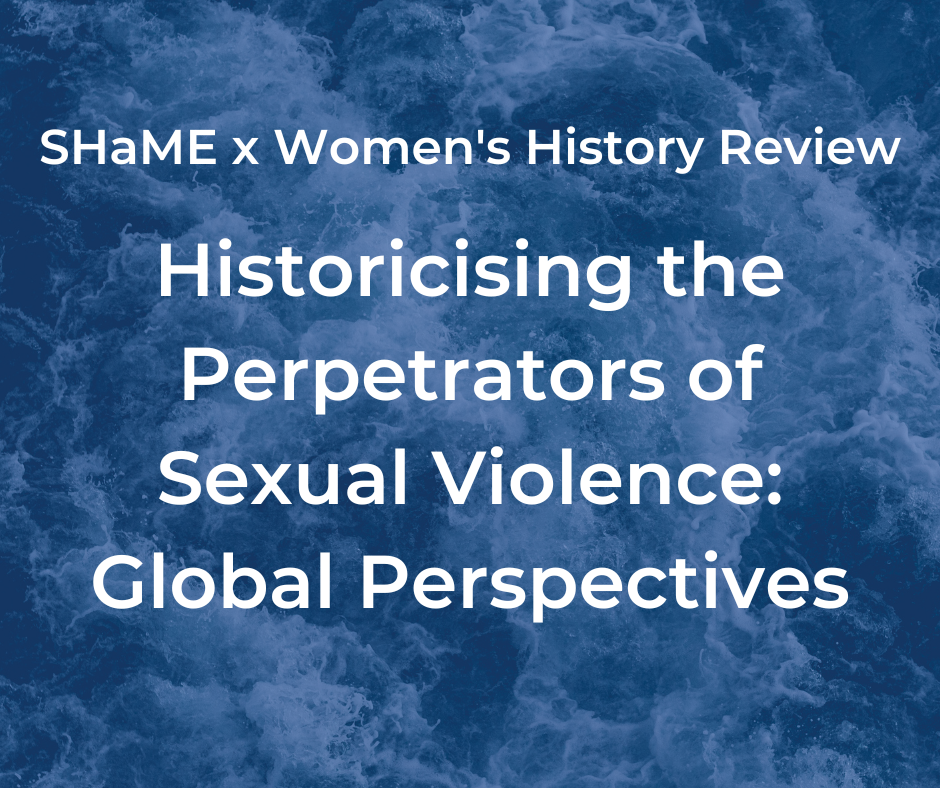Historicising the Perpetrators of Sexual Violence: Global Perspectives
Special Issue: Women’s History Review
This special issue seeks to re-situate perpetrators at the heart of discussions of sexually coercive behaviour. Acts of sexual aggression are intrinsically connected to historically contingent gender dynamics, as well as by social structures which foster the circumstances for sexual assault. In a wide range of geopolitical contexts, the perpetrators of sexual violence have been protected by ineffective and intrusive police, prosecution and court systems which ultimately place the burden of proof on victims, and by patriarchal social structures in which aggressors are more likely to occupy positions of power which can be exploited with impunity. Our contributors come from varied disciplinary backgrounds, including anthropology, sociology, media studies and history to explore perceptions and characteristics of sexual perpetrators in a range of geographical and cultural contexts. Throughout their work, the term ‘perpetrator’ emerges as both the individual agent of crime as well as the institutions, social structures, and discourses which facilitate and accommodate sexual violence. By recognising the historical contingency of sexual perpetrators, we eschew essentialising worldviews which present sexual harm as natural and immutable.
This page collates the links to the contributions to the special issue, which are available online open access through the Women’s History Review.

Poem: ‘I Do Not Believe In Silence’ by Clare Shaw, from Head On (Bloodaxe Books, 2012)
Introduction: Historicising the perpetrators of sexual violence: global perspectives from the modern world by Ruth Beecher and Stephanie Wright
Article: ‘Facts that are declared proven’: sexual violence, forensic medicine, and the courtroom in early Francoist Spain by Stephanie Wright
Article: Sexual violence, deviance, and the paraphilias in American psychiatry, 1952–2013 by Joanna Bourke
 Ruth Beecher is in charge of the day-to-day running of SHaME. She is also a postdoctoral research fellow on the SHaME project. She is a social and cultural historian with interests in the history of race, gender, children and families, and popular culture in the US and UK in the twentieth century. She is trained in both applied and historical research (University of Sheffield and Birkbeck). Prior to the project, she managed a range of family support services in London.
Ruth Beecher is in charge of the day-to-day running of SHaME. She is also a postdoctoral research fellow on the SHaME project. She is a social and cultural historian with interests in the history of race, gender, children and families, and popular culture in the US and UK in the twentieth century. She is trained in both applied and historical research (University of Sheffield and Birkbeck). Prior to the project, she managed a range of family support services in London. Dr Stephanie Wright is a Lecturer in Modern European History at Lancaster University and an Associate Fellow of the SHaME (Sexual Harms and Medical Encounters) Project at Birkbeck. Her research focuses on the history of disability and sexuality, particularly under the Francoist regime in Spain. She tweets as @EstefWright.
Dr Stephanie Wright is a Lecturer in Modern European History at Lancaster University and an Associate Fellow of the SHaME (Sexual Harms and Medical Encounters) Project at Birkbeck. Her research focuses on the history of disability and sexuality, particularly under the Francoist regime in Spain. She tweets as @EstefWright.